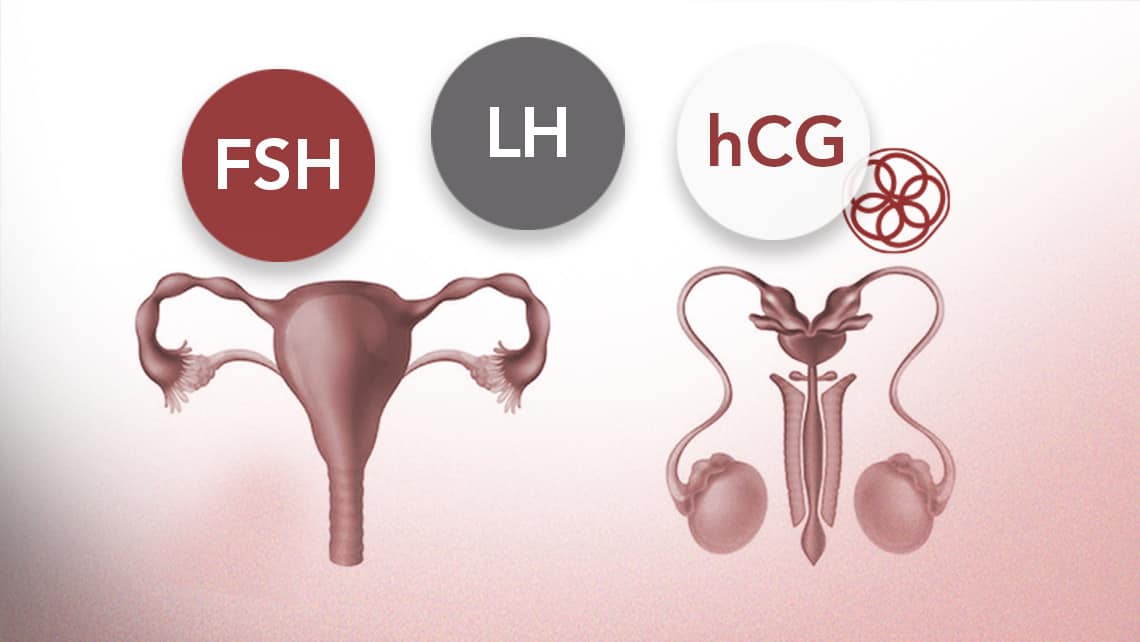
Gonadotrophins: What are they? What are their functions?
Reproductive processes are regulated by hormones called gonadotrophins. These hormones are present in both men and women. The hormones in this group are follicle-stimulating hormone (FSH), luteinising hormone (LH) and human chorionic gonadotropin (hCG).
The exogenous administration of these hormones allows controlled stimulation of follicle development and ovulation, and is very useful in assisted reproduction treatments to improve the outcome of the process.
Índice
What are gonadotrophins?
Gonadotrophins are hormones that work in the gonads, i.e. in the ovaries in women and in the testes in men, regulating the proper functioning of both gonads. Gonadotrophins are not formed in the gonads, but migrate to them from their place of origin, in the case of FSH and LH they are generated in the pituitary gland in response to gonadotropin-releasing hormone (GnRH). This other hormone is produced in the hypothalamus so that an axis of hormone regulation known as the hypothalamus-pituitary-gonad is established.
On the other hand, hCG is produced by the embryo and is known as the pregnancy hormone.
The hormones do not differ much from each other, FSH, LH and hCG are made up of two subunits called alpha and beta. The alpha subunit is identical in all three hormones, differing only in the beta subunit, which is specific to each hormone.
What is the function of gonadotrophins in women and men?
In the following tables we can learn a little more about each of them and establish what their function is in both women and men:
FSH follicle stimulating hormoneAs its name suggests, it is responsible for follicle growth in women, although it performs more functions in both women and men. |
||
| WOMEN | MEN | |
|
|
|
LH luteinising hormone |
||
| WOMEN | MEN | |
|
|
|
hCG human chorionic gonadotropin hormone
Human chorionic gonadotropin is produced by the embryo and plays a key role in enabling the corpus luteum to produce progesterone, a hormone that is necessary to maintain pregnancy in its early stages.
hCG is the hormone used in pregnancy tests to detect pregnancy, either in urine or blood tests.
In addition to this utility, hCG is used to trigger the LH peak in assisted reproduction treatments. This LH peak allows follicular and oocyte maturation. The similarity between these two hormones allows the use of exogenous hCG to induce an LH surge, thus activating the cascade of reactions that induce LH maturation. The use of hCG also allows luteal phase support. In the luteal phase, hCG is responsible for the maintenance of the corpus luteum produced after follicle rupture and thus maintains the production of progesterone. This hormone is necessary for endometrial receptivity and embryo implantation.
- Gonadotropins and assisted reproduction
Gonadotropins (FSH, LH and hCG) play a fundamental role in the reproductive process regulation in vivo and in the optimisation of in vitro fertilisation treatments.
Dr Dori Rodríguez, biologist at Instituto Bernabeu.
